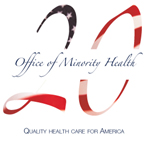|
In this article...
|
At 36, Sandy White was tested for anemia, but exams suggested that she had a polyp in her colon. Soon after, a colonoscopy confirmed it was actually a tumor.
White, now 52, said she didn't know much about colon cancer, and her lack of information made her fear the worst. "It wasn't what I had anticipated," she said. "When you hear cancer you think the worst. If it is not death, it is going to be a death sentence. It's just a matter of time."
Yet in spite of the news, White said she adopted a proactive attitude and started to approach the disease as if it were a professional project. Even though she received her diagnosis prior to the Internet era, she looked for any available piece of reading material and tried to educate herself.
Diagnosed with stage 2 colon cancer, White had surgery quickly. As she recalls, being informed and involved in her treatment were crucial aspects in her recovery process. "I took one step at a time and I identified the things I had control over. I couldn't stop or change where the disease was in my body but I could take control of what my next step would be."
After her diagnoses, White started her journey to spread the message of prevention. Now she is the board secretary and liaison to the advocacy committee at the Colon Cancer Alliance (CCA)  , a national nonprofit organization that provides support, education and advocacy for colorectal cancer patients.
, a national nonprofit organization that provides support, education and advocacy for colorectal cancer patients.
Colon cancer is a type of cancer that affects the large intestine or the rectum and can also be referred to as colorectal cancer. In many cases, colorectal cancer starts as a polyp, an abnormal growth of tissue that lines the large intestine and protrudes into the intestinal canal. Colorectal cancer is the second leading killer among cancers in the United States and the third most common cancer among women and men.
 However, regular screenings for people age 50 and older could prevent up to 60 percent of deaths from this type of cancer, according to the Centers for Disease Control and Prevention (CDC). Early screenings are also recommended for younger people with personal or family history of colorectal cancer, colorectal polyps or a previous diagnosis of inflammatory bowel disease.
However, regular screenings for people age 50 and older could prevent up to 60 percent of deaths from this type of cancer, according to the Centers for Disease Control and Prevention (CDC). Early screenings are also recommended for younger people with personal or family history of colorectal cancer, colorectal polyps or a previous diagnosis of inflammatory bowel disease.
Before White was diagnosed, she wasn't aware of any family history of colorectal cancer. After asking relatives, she found out her uncles had polyps. "Unlike a lot of other cancers, colon cancer is not one of those diseases that you talk about a lot. It is not a disease that people want to sit around the kitchen table and chat about, so in most cases you don't know about family history until your are diagnosed," she said.
To some people, colorectal cancer is embarrassing and uncomfortable to talk about, said Jacqueline H. Derby, Support Services Director of CCA. In order to provide resources to colorectal cancer patients and survivors, CCA offers a helpline, an online community and different support programs  .
.
"A lot of people just call us because they need somebody to really listen to them and care about what's happening," Derby said, and added that in order to defeat cancer, patients need to find safe places where they can openly talk about their problems and concerns.
"In the case of minority groups, having culturally and linguistically appropriate services is very valuable in bringing hope and encouragement while, at the same time, providing clear and concise information," said Carmen Ortiz, executive director of Circulo de Vida  , a nonprofit organization that offers Spanish-language support programs for cancer patients and their families in the San Francisco Bay Area.
, a nonprofit organization that offers Spanish-language support programs for cancer patients and their families in the San Francisco Bay Area.
"Many of our clients don't read or read poorly," she said. "We do a lot of listening; it's not enough to just give out a bag of written information."
White, who has been in remission for 15 years, said that this disease is preventable with information and people can have a long life post cancer if they receive an early diagnosis.
"I am grateful for the opportunity to have been screened early enough to be able to see my children, to see my grandchildren and see a lot of successes in my family that, had I not been diagnosed early enough, I would've never seen," she said. "Awareness can save your life."
---
Isaac Itman is a writer for OMHRC. Comments? Email: info@omhrc.gov
Links
Colon Cancer Alliance (CCA)
http://www.ccalliance.org/notalone.html 
Centers for Disease Control and Prevention
http://www.cdc.gov/cancer/colorectal/
Circulo de Vida
http://www.circulodevida.org/ 
Colorectal Cancer Coalition
http://www.fightcolorectalcancer.org/ 
Prevent Cancer Foundation
http://www.preventcancer.org/ 
The Cancer Project
http://www.cancerproject.org/ 
Publications
Colorectal Cancer Screenings Save lives [PDF, 334KB]Screen for Life [PDF, 1.09MB]
Health Professionals: Screen for Life [PDF, 742KB]
Statistics
Cancer Facts and Figures 2008 [PDF, 976KB]
[PDF, 976KB]Colorectal Cancer Statistics
State Cancer Profiles
Related Articles
Colorectal Cancer, Catch it Early, Get Screened!Colorectal Screening, Getting Tested Can Save Your Life [PDF, 112KB]
Surviving Cancer Commands a Daily Attitude of Resilience
You will need Adobe Acrobat® Reader™ to view PDF files located on this site. If you do not already have Adobe Acrobat® Reader™, you can download here for free.




 Links
Links